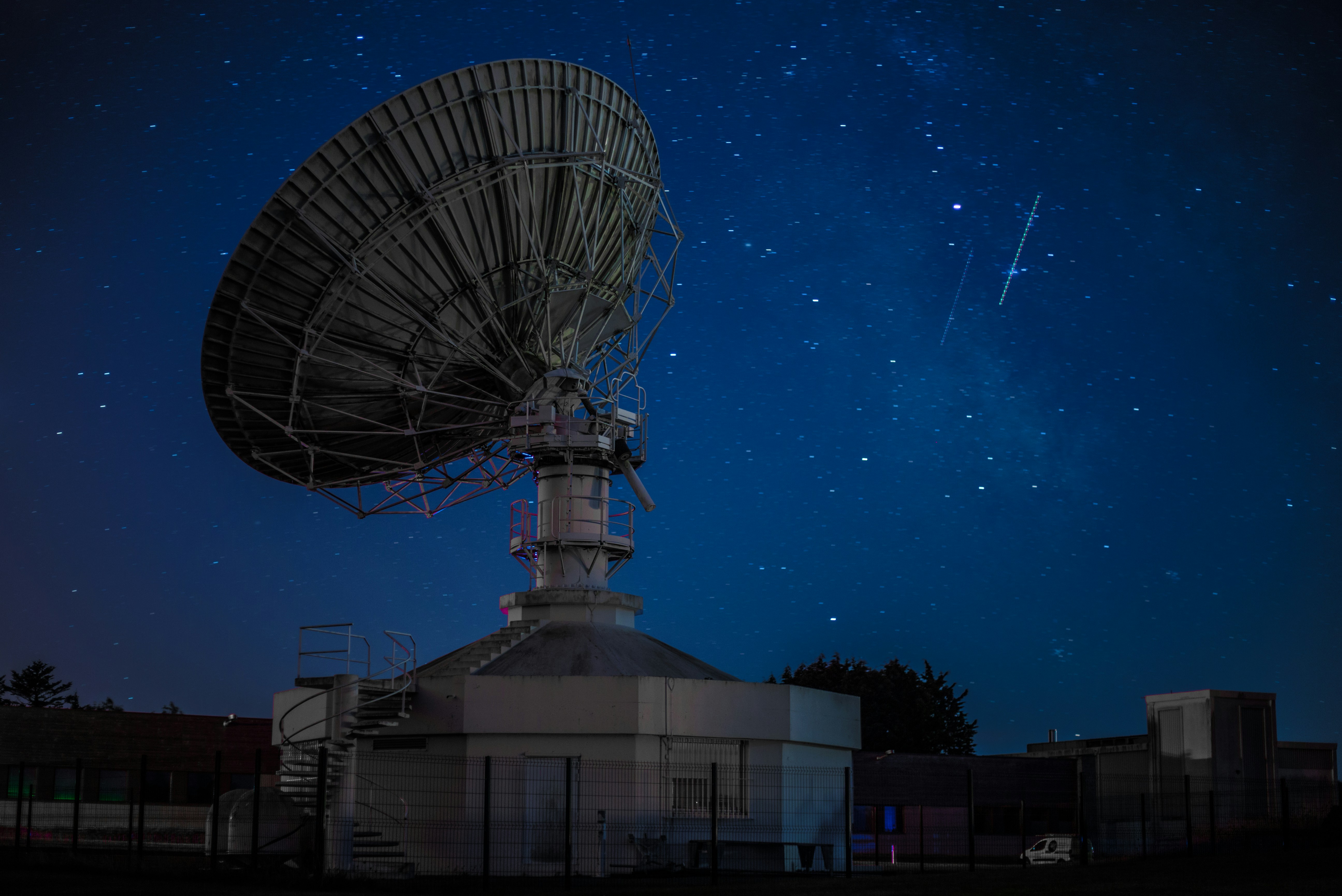For decades, the night sky has been romanticised as humanity’s quiet frontier, the final escape from noise, politics, and whatever’s trending on Earth. Turns out it’s anything but quiet. According to a three-year investigation, half of all geostationary satellites are effectively broadcasting their private communications to anyone with a spare weekend, a £500 dish, and a laptop. Yes, the same orbit that beams down weather reports, live TV, and in-flight Wi-Fi is also casually leaking military data, ATM commands, and your gran’s holiday WhatsApps.
Apparently, the sky isn’t watching us, it’s tattling.
Researchers at the University of Maryland and UC San Diego proved that nearly half of GEO satellite links transmit data in cleartext. Not encrypted, not obfuscated, just sailing through the void like postcards marked “please read.” They picked it up with commercial-off-the-shelf gear, the kind you’d use to stream Sky Sports, not spy on the Pentagon. The whole setup cost about six hundred dollars.
Among the intercepted data were details from U.S. Navy vessels, Mexican military networks, banking systems, and entire cellular backhauls from T-Mobile. It’s a buffet of global secrets, and the only admission fee is curiosity and a clear view of the southern sky.
When governments used to do this, it was called Signals Intelligence. When anyone can do it, it’s called a s*** show.
Security through obscurity, and prayer
Most of these satellites were designed when encryption was something only James Bond worried about. Back then, the assumption was simple: if the equipment to intercept space signals cost millions, only superpowers could afford to listen. Then came software-defined radios, and suddenly every hobbyist hacker could turn their loft into GCHQ.
The result? The orbit above us has become a global party line. Data from warships, energy grids, and financial systems drifts through the ether waiting for whoever tunes in first. It’s the cosmic equivalent of leaving your home security cameras streaming to YouTube.
Government agencies like CISA and the NSA have since issued high-priority advisories telling satellite operators to implement encryption immediately. Which sounds reassuring until you realise these advisories were prompted by researchers proving the leaks in public. The global security community didn’t fix the problem, it just got embarrassed enough to finally acknowledge it exists.
Everyday life, quietly exfiltrated
The privacy fallout is less James Bond and more Black Mirror. In one nine-hour listening session, researchers captured call metadata and phone numbers for over 2,700 users. That includes text messages, browsing history, and even in-flight Wi-Fi data, which means yes, your desperate attempt to order a gin and tonic over the Atlantic may now be preserved somewhere in a stranger’s packet log.
For people in rural areas, ships, or planes, where satellite is the only lifeline, this isn’t theoretical. It’s ambient. Your conversations, coordinates, and device IDs are bouncing around the stratosphere in plain sight. You might as well shout your passwords into a megaphone pointed at Mars.
And because corporations treat satellite links as “internal connections,” they often skip the encryption that’s standard on terrestrial networks. It’s a bit like assuming a locked front door makes sense when you’ve left the roof open.
The democratisation of spying
Once upon a time, espionage required funding, clearance, and an overcoat. Now it just needs curiosity and a credit card. The same Turla group backed by the Russian state exploited satellite links for covert Command-and-Control communications, a method so efficient it left no digital fingerprints. But today, anyone with enough technical literacy could build their own space-age listening post. We’ve effectively open-sourced spying.
This is the new class divide: those who encrypt, and those who unknowingly star in other people’s data collections.
Industry response has been predictably reactive. Telecoms like T-Mobile and AT&T scrambled to switch on encryption after the research hit headlines, confirming that the issue wasn’t technical impossibility, just decades of negligence. Meanwhile, CFE in Mexico was found transmitting internal power-grid data unprotected. Which means that while energy ministers talk about “cyber resilience,” someone could theoretically plan a blackout from their garden shed.
The irony is cosmic: we’ve filled the sky with multi-billion-pound hardware and forgot to lock the door.
A fragile upgrade
Low Earth Orbit constellations like Starlink and Telesat are now selling “security by design,” touting agile beams, zero-trust frameworks, and NSA-certified encryption. But the legacy satellites still circling at 36,000 kilometres can’t be patched. They’re like floating ghosts of the dial-up era, relics humming with unencrypted data from governments, corporations, and unlucky civilians.
The global internet has always relied on invisible trust: we assume our data takes a straight, private path to its destination. Now we know half of it takes a detour through open space, waving as it passes.
So yes, the stars are whispering. But not in the poetic sense. They’re whispering your call logs, your Netflix habits, and someone’s naval coordinates to whoever happens to be listening. Space, the last refuge of privacy, has joined the surveillance economy, not because of aliens, but because humans can’t stop cutting corners.
Maybe one day we’ll fix it. Or maybe we’ll just accept that the heavens are now part of the cloud, a cloud with a very bad password.
